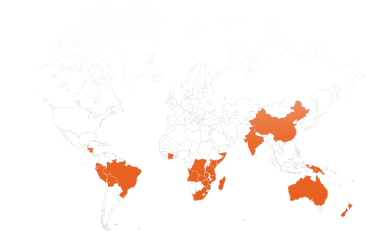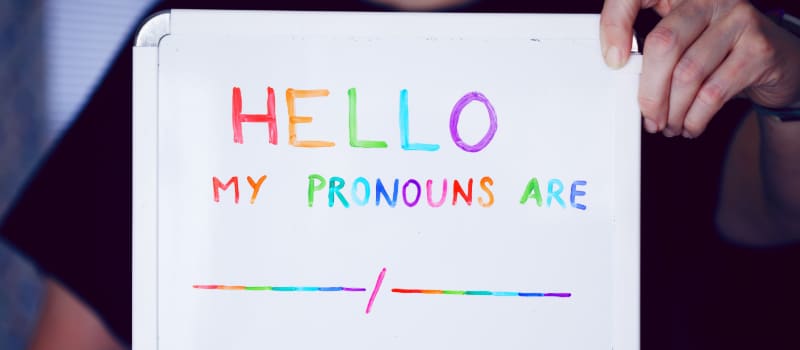Why have people started sharing their pronouns? You may have noticed, more and more, that people have started to share their pronouns in their email communications, in their introductions and even in conversation. But what is this all about and what is it trying to achieve?
An effort to be more inclusive
Pronoun Examples:
She/Her/Hers
He/Him/His
They/Them/Theirs
Ze/Zir/Zirs
Xe/Xem/Xirs
Historically, society has made the assumption that when you meet someone, you can visually identify their gender and, from there, assign them a pronoun, he or she. The English language and many other languages around the world are constructed with gender pronouns, so we can’t avoid it! But there are many instances where that might not be so easy, and people are starting to recognize that. For example:
- We don’t want to assume someone’s gender based on their appearance. Someone’s gender identity may not conform to their gender expression. In other words, the ways in which someone chooses to communicate and express their gender with clothing, makeup or mannerisms, or the way you perceive them, may not necessarily align with the identity they have chosen for themselves.
- Many people identify as gender nonconforming, non-binary, transgender, etc., so traditional gender pronouns and identities may not necessarily apply.
- Many people have gender non-specific names. These could be recognized “mainstream” names like Jordan, Jaime, Lesley, new or non-traditional names, or names from other cultures. Also, there are many formal settings where gender-neutral prefixes are common, such as Doctor, Professor, Attorney, etc.
But none of these apply to me! Why would I share my pronouns?
While this might be the first time you are even thinking about your pronoun, that is not the case for many people.
For anyone in that position, being addressed by a pronoun that does not reflect their identity can be annoying or truly upsetting. And for those who have encountered challenges related to gender identity, it can be a constant reminder of that struggle.
The challenge to date is that only people in these positions have had to share their pronouns, either when correcting people, or when asking a clarifying question. These corrections and questions highlight the issue every time.
Additionally, for those addressing them, getting a pronoun wrong can feel embarrassing.
By making pronoun sharing more commonplace, we can remove the stigma and normalize the conversation. In doing so, a person who has been affected by challenges surrounding gender identity in the past can make their introductions, or engage in communications without it being “a big deal.” At the same time, those worried about offending others have a commonly-used tool to help avoid any issues.
Do I have to share my pronouns? Is it bad if I don’t?
Of course not! There are many reasons why you may not want to share your pronouns, including your comfort level, the relationship you have with the person you are communicating with, the specific situation, and your personal relationship or journey with your own pronouns. The idea of sharing pronouns is to increase inclusivity, not to exclude a different group, so as learning about this topic helps us understand and remove judgment, this extends to those who choose not to share their pronouns as well.
If you’d like to learn more about this subject in general, we would suggest visiting GLSEN, a network of educators working to address ways to improve learning environments for LGBTQ+ students.
What about pronouns and international travel?
As you engage in cross-cultural communications, you will find that pronoun sharing is a relatively new concept and not broadly adopted across most countries. As it becomes more common in your home country and as you engage internationally over time, the idea will spread and more people will question gender assumptions and pronouns – opening up the conversation and leading to greater inclusivity overall.
We also recognize that in some countries there is still discrimination, violence, and even legal prohibition of non-conforming genders and sexualities. For these locations, our teams are trained in supporting all of our participants as they navigate their time abroad, to ensure their safety and comfort within local cultural landscapes. We make sure that Kaya participants always have someone they can trust in to speak openly and confidentially with. If you have any concerns, or want advice on choosing your placement in line with gender issues, reach out to the Kaya team.
Just remember, we are here to help support all prospective travelers. If you have any questions or if you’re just curious about your identity abroad, we’re here to chat!
Hope you found this blog interesting. To learn more about the projects we offer, please connect with one of our advisors using the “chat now” button, or feel free to request a brochure using the button opposite.


Recent comments